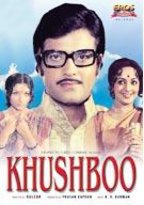My Favorites
watching the candle burn…
the ‘cutting’ chai at a road side stall on an early morning…
an unexpected phone call from a friend saying she misses me…
a peck on the cheek by my beloved…
a plate of hot steaming “chole” at marine lines…
a tight hug from my darling niece…
holding hands with him…
a good night’s sleep besides by my grandma…
a jagjit singh gazal…
the pitter-patter of raindrops…
the morning dew…
the splash of colours at sunsetma’s lecture for not taking care of my health…
late night talks on the phone with a close friend…
writing down my favorite things in life in a candlelight…
talking, laughing, having fun…
walking through the woods…
listening to music, anytime, anywhere…
gazing out of a train window…
cooking a surprise meal for ma…
watching the last of raindrops fall from the leaves after the rain stops…
the “kala-katha” ice gola in summer…
the pickles in winters…
the bad patches in life……
and the better ones that soon follow…
the mornings when I move around with a dance in my steps…
“friends” on zee English…
a cute puppy…
licking off the tip of an ice-cream…
window-shopping with no money in pockets…
a heart-to-heart talk with ma…
a good pillow fight with didi…
missing dad…
hearing about our childhood from parents…
getting nostalgic about the good-old college days…
a ride with him on the bike…
a spicy pani-puri, followed by a sadha puri…
sleeping on my ma’s lap, and feeling her fingers move through my hair…
a plant nursery…the view from a mountain top after a treacherous climb…
a family get-together at a function…
satin ribbons…
sitting quietly in a temple, watching people pray…
the smell of new stationary…
éclairs…
a full-moon night…
a quick afternoon nap…
a dinner with close family friends…
a blind date…
a strong filter coffee…
steaming dal-rice served by ma…
sunflowers…
a slow train...
a five star Cadbury…
“Tom & Jerry” on cartoon network…
a heavy breakfast…
amazing wallpapers for my computer…
cooking up fairy tales and stories of Krishna for my niece…
watching her frightened face as the demon arrives…
watering the garden early morning…
a peacock’s feather…
a home-made sandwich with a tasty ”pudina” chutney…
a rosebud in the garden…
watching him when he’s asleep…
krishna’s temple in pandharpur…
dancing in the rain…
long journeys in the state transport buses…
a late night action thriller…
a sudden, out-of-nowhere kiss from him, interrupting my nonstop chatter…
writing long, heartfelt letters to dear ones…
baby pink colour…
a good book…
my journal and my pen…
pot-painting…
painting a house…
running my fingers through his hair…
watching the fish swim…
a rainbow…
a splash of colours…
the smell of carbon as I blow off the candle…
.
.
.
life…

.2.jpg)
